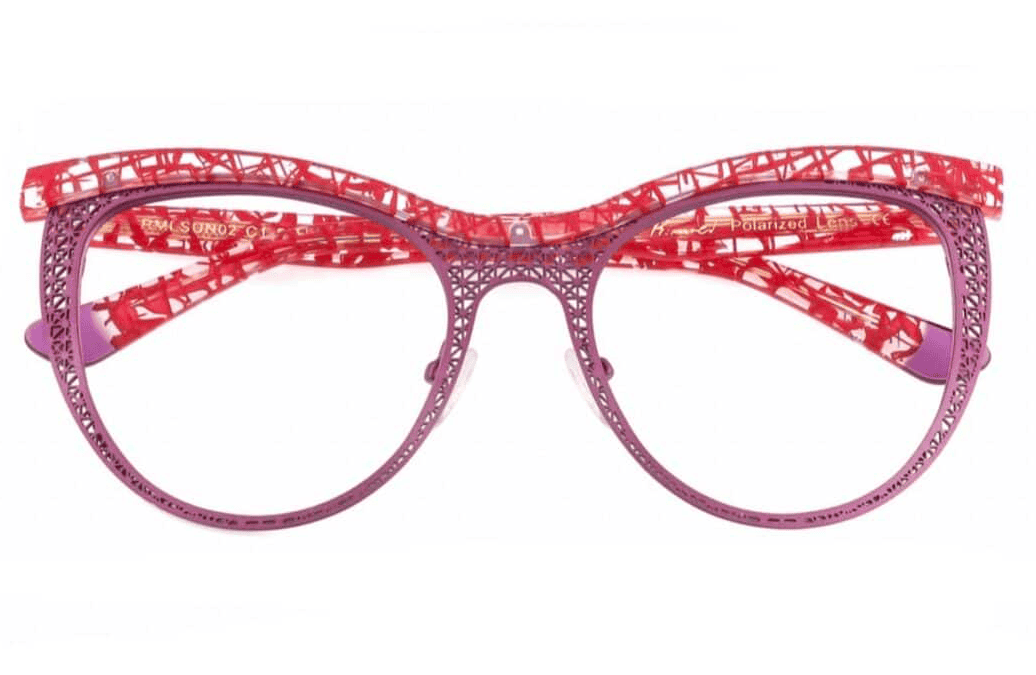What Are Vision Problems?
Before learning about how glasses work, it’s important to know the different kinds of vision problems. These occur when the eye is unable to properly focus light on the retina, (the layer of light-sensitive cells at the back of the eye). This is typically due to refractive errors, which happen when the shape of the eye or its cornea causes light to bend incorrectly as it enters the eye. These refractive errors lead to blurry or distorted vision. There are several types of refractive errors, each affecting vision in different ways.
What Causes Nearsightedness?
Nearsightedness, or myopia, happens when the eye is too long or the cornea is too curved. This causes light to focus in front of the retina, making distant objects appear blurry while close objects remain clear.
What Causes Farsightedness?
Farsightedness, or hyperopia, occurs when the eye is too short or the cornea is too flat. In this case, light focuses behind the retina, which makes it difficult to see nearby objects clearly, while distant objects may still appear in focus.
What Causes Astigmatism?
Astigmatism is another common refractive error, caused by an irregularly shaped cornea or lens. Instead of being perfectly round, the eye has an oval shape, leading to multiple points of focus either in front of or behind the retina. This causes blurry or distorted vision at all distances.
What Causes Presbyopia?
Presbyopia, unlike other refractive errors, is age-related and typically affects people over the age of 40. As the eye’s lens becomes less flexible with age, it becomes harder to focus on close objects. This is why many people need reading glasses as they get older.
These refractive errors are the most common causes of vision problems and can usually be corrected effectively with glasses.
How do Glasses Correct Vision Problems?
Glasses correct vision by using lenses to bend, or refract, light in a way that compensates for the eye’s inability to focus light properly. Each type of refractive error requires a specific kind of lens to direct light onto the retina where it should naturally focus.
How do Glasses Correct Nearsightedness?
For nearsightedness, concave lenses are used. These lenses are thinner in the middle and thicker at the edges, which causes light rays to spread out slightly before they enter the eye. By diverging the light, the lens helps shift the focal point of the light further back, allowing it to reach the retina correctly. This adjustment brings distant objects into focus.
How do Glasses Correct Farsightedness?
Farsightedness, on the other hand, is corrected with convex lenses. These lenses are thicker in the center and thinner at the edges. They bend the light rays inward, helping to shorten the focal point so that it falls on the retina. Convex lenses allow people with farsightedness to see nearby objects clearly.
How do Glasses Correct Astigmatism?
Astigmatism is more complex to correct because it involves an uneven corneal surface. Glasses for astigmatism use cylindrical lenses, which are shaped to correct the uneven curvature of the cornea. These lenses direct light to a single focal point on the retina, correcting the distortion and making vision clearer at all distances.
How do Glasses Correct Presbyopia?
In cases of presbyopia, multifocal lenses or reading glasses are typically used. Multifocal lenses, such as bifocals, trifocals or progressive lenses, have different sections designed for different distances. The lower part of the lens helps with close-up tasks like reading, while the upper part corrects for distance vision. This allows people with presbyopia to focus on both near and far objects with a single pair of glasses.
Glasses work by compensating for the eye’s deficiencies in bending light, ensuring that light entering the eye is correctly focused onto the retina. This precise adjustment allows people with refractive errors to see the world clearly again, whether they’re looking at something near or far.
Discover independent eyewear with Project Spex. Every Friday, we deliver the latest in collectible eyewear and your favorite independent designers.
Sign up now and never miss a thing!
About The Author:

Will Benjamin is an advocate for independent eyewear and one of the driving forces behind Project Spex. With a passion for unique, collectible, and limited-edition eyewear, Will aims to inspire people to build their own collections through Project Spex, while supporting the success of independent opticals.


